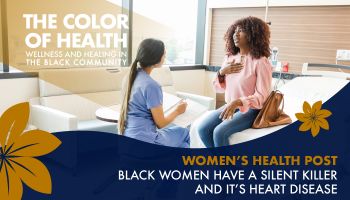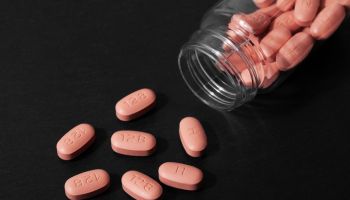Health
After months of anticipation, LoveErica.com is officially live! Erica Campbell has curated a digital community dedicated to intentionally curating timelines of love and positivity. This community will include not only include music to inspire an uplifting lifestyle, but will also include motivation and ministry from the Get Up Church’s first lady…and the best part? You […]
Black women's fibroids are often more numerous and larger, leading to debilitating pain, heavy and prolonged menstrual bleeding, and anemia.
Black women do it all, so our health needs more than willpower. Here are 7 essential vitamins every Black woman needs to thrive, not just survive.
Studies show that Black men who have experienced incarceration have higher rates of PTSD, depression and psychological distress.
Black women are disproportionately affected by heart disease, but how can we change this alarming disparity? It starts with knowledge.
It has been a very long journey in the ongoing fight to end the HIV/AIDS epidemic, and now it appears we might be one step closer towards our goal
Living in a disadvantaged neighborhood contributes to a rare form of heart failure that disproportionately affects Black mothers.
The bacterial disease, which spreads person-to-person, has seen a rise in cases in the Portland, Oregon, metro area.
In the past few years, Black communities have increasingly turned to ancestral healing traditions—practices that sustained our ancestors through hardship. Rooted in herbal medicine, spiritual rituals, communal healing, and energy work, these traditions are gaining greater visibility, not as fleeting trends, but as essential tools for addressing historical trauma and breaking generational cycles.
Pain has a way of shaping us. It breaks us open, forcing us to confront parts of ourselves we might otherwise avoid.
Many ancient healing traditions, including Ayurveda and herbalism, have long turned to the plant world for support in calming the nervous system and restoring balance.
If you want to lower your risk of having a stroke in your lifetime, you might want to rethink your oral hygiene.











